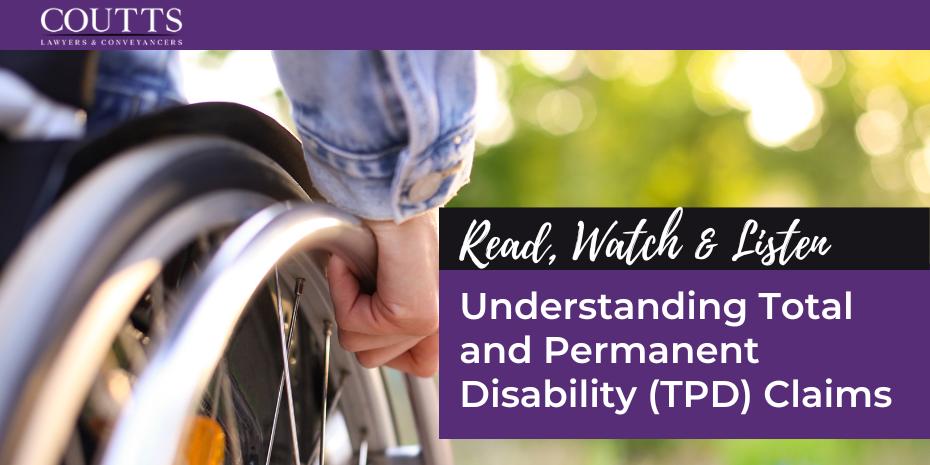KEY TAKE-OUTS:
- If you have been injured at work, you may be entitled to workers’ compensation.
- There are certain eligibility requirements, and various tests, which must be satisfied in order to receive workers compensation in New South Wales.
- It is important to seek comprehensive legal advice early to ensure you understand your entitlements to maximise your compensation.
Navigating the complexities of workers’ compensation in New South Wales can be daunting, but understanding your rights and entitlements is essential for those who have experienced workplace injuries. In this blog, we’ll explore the key aspects of the Workers Compensation Scheme, including eligibility criteria, weekly benefits, medical expenses, and lump sum compensation. Stay informed and learn how to maximise your claim with the help of our expert advice, tailored specifically for employees in New South Wales.
How to get Weekly Benefits under the Workers Compensation Scheme in New South Wales
To be entitled to weekly benefits under the Workers Compensation Scheme in New South Wales*:
- You must be a ‘worker’ as per the Workplace Injury Management and Workers Compensation Act 1988
- You must be injured – an injury means personal injury arising out of or in the course of employment and includes a disease injury. A disease injury is one which is contracted by a worker in the course of employment, and also includes the aggravation, acceleration, exacerbation or deterioration in the course of employment of any disease.
- Employment must be a substantial contributing factor to a personal injury.
- Employment must be the main contributing factor to a psychological injury, disease injury, or aggravation, acceleration, exacerbation or deterioration of a disease injury.
- For a psychological injury, the injury cannot be caused by reasonable actions of the employer
- You must sustain a total or partial incapacity for work as a result of the workplace injury
An injured worker’s weekly benefits are paid in accordance with their Pre-Injury Average Weekly Earnings (‘PIAWE’). To learn how to calculate your PIAWE and ensure you are receiving your correct weekly benefits, read our blog on PIAWE here, or our blog on weekly benefits here.
*Further provisions/thresholds apply to heart attack injuries, stroke injuries, journey claims, recess claims, claims by trade union representatives, hearing claims, and exempt workers.
How to get Medical Expenses under the Workers Compensation Scheme in New South Wales
Injured workers can claim expenses relating to medical treatments and services, including hospital and rehabilitation, and reasonably necessary travel to obtain such treatments and services. This type of compensation is regulated by Division 3 of the Workers Compensation Act 1987 (NSW) (the Act’).
As per Section 60 of the Act, the medical treatment or service must be reasonably necessary because of the injury, and in most circumstances, be pre-approved by the insurer. There are certain circumstances in which pre-approval is not required, such as initial treatment, consultations with a nominated treating doctor, or emergency medical services provided in public hospitals.
However, this does not apply to injured workers in New South Wales who are covered under the Safety and Rehabilitation Act. Such workers are entitled to benefits under the Comcare scheme, which is not covered in this blog.
How to get Lump Sum Compensation under the Workers Compensation Scheme in New South Wales
A claim for lump sum compensation must be accompanied by a report from a permanent impairment assessor listed on the SIRA website. Your lawyer will arrange the relevant appointment for you to be medically assessed.
Physical Injuries
To be eligible to make a claim for lump sum compensation for physical injuries, an injured worker must:
- Have reached maximum medical improvement. This means that the injury(ies) have stabilised and are unlikely to improve or deteriorate within a 12-month period.
- For workers injured on or after 1 January 2022 to 18 June 2012, be assessed as at least 1% whole person impairment. However, for hearing loss, a minimum of six percent hearing loss is required. Pain and suffering will also be payable if assessed as at least 10%.
- For exempt workers, being a police officer, paramedic, or fire fighter, be assessed as at least 1% whole person impairment. Pain and suffering will be payable if assessed as at least 10%.
- For workers injured on or after 19 June 2012, be assessed as greater than 10% whole person impairment.
Psychological Injuries
To be eligible to make a claim for lump sum compensation for psychological injuries, an injured worker must:
- Have reached maximum medical improvement.
- For workers injured on or after 1 January 2022 to 18 June 2012, be assessed as at least 15% whole person impairment. Pain and suffering will also be payable if assessed as at least 15%.
- For exempt workers, be assessed as at least 1% whole person impairment. Pain and suffering will be payable if assessed as at least 15%.
- For workers injured on or after 19 June 2012, be assessed as greater than 15% whole person impairment.
How Much Will You Receive?
The amount of lump sum compensation you will receive will depend on:
- Your injuries – if you sustain a back injury, you are entitled to claim a 5% uplift of compensation if the only injury you sustain is your back injury.
- Your date of injury.
- Your degree of permanent impairment.
It is important to remember:
- Any payment of lump sum compensation is paid in addition to weekly benefits and medical expenses.
- Making a claim for lump sum compensation does not close your claim.
- A claim for lump sum compensation is tax-free.
- Your degree of permanent impairment determines how long you are entitled to weekly benefits and medicals
Example One
Sally was involved in an accident at work on 5 August 2019 and broke her leg. Sally required surgery and is no longer able to work in her pre-injury employment. Sally saw an injury compensation lawyer at Coutts and was arranged to be assessed by a SIRA approved medical assessor. Sally was assessed as 12% whole person impairment. Sally was able to make a claim of $27,250 for lump sum compensation and continued to receive weekly benefits as per the statutory scheme and reasonably necessary medical expenses as per Section 60 of the Act.
Example Two
David was seriously injured at work on 15 June 2023. He injured his back in three places and has required surgery and physiotherapy treatment. David saw an injury compensation lawyer at Coutts and was arranged to be assessed by a SIRA approved medical assessor. David was assessed as 18% whole person impairment. David was able to make a claim of $49,560 plus 5% uplift for his back injuries. David’s total claim for lump sum compensation is $52,038. David also continued to receive reasonably necessary medical expenses as per Section 60 of the Act and would be entitled to the payment of weekly benefits as per the statutory scheme if he suffers from an incapacity to work.
What About Damages for Past and Future Economic Loss, and Loss of Superannuation?
An injured worker who is assessed as at least 15% whole person impairment may be entitled to make a further claim, referred to as a Work Injury Damages Claim. This is a separate claim to a worker’s compensation claim, but does arise out of the workplace injuries received. We will expand on the elements of this claim and what entitlements are available to injured workers next time!
What Should I Do If I Have Been Hurt at Work?
The process to making a claim for workers compensation, and the initial process, is as follows:
Step 1: Read our Blog ‘What Can Be Claimed as a Workplace Injury?” and follow the steps!
Step 2: Contact the team at Coutts to obtain legal advice as soon as possible. Even if a dispute has not arisen with the insurer, they may be additional compensation you are entitled to that you are unaware of.
Want to Know More? Concerned about Costs?
Contact our injury compensation team today to see how we can assist you. At Coutts, we have multiple IRO Approved Lawyers that provide you with legal advice in relation to your workers compensation claim at no cost to you. We also offer No Win, No Fee agreements for injured workers not eligible to receive an IRO grant of funding.
For further information please don’t hesitate to Contact Coutts today.
This blog is merely general and non-specific information on the subject matter and is not and should not be considered or relied on as legal advice. Coutts is not responsible for any cost, expense, loss or liability whatsoever to this blog, including all or any reliance on this blog or use or application of this blog by you.



